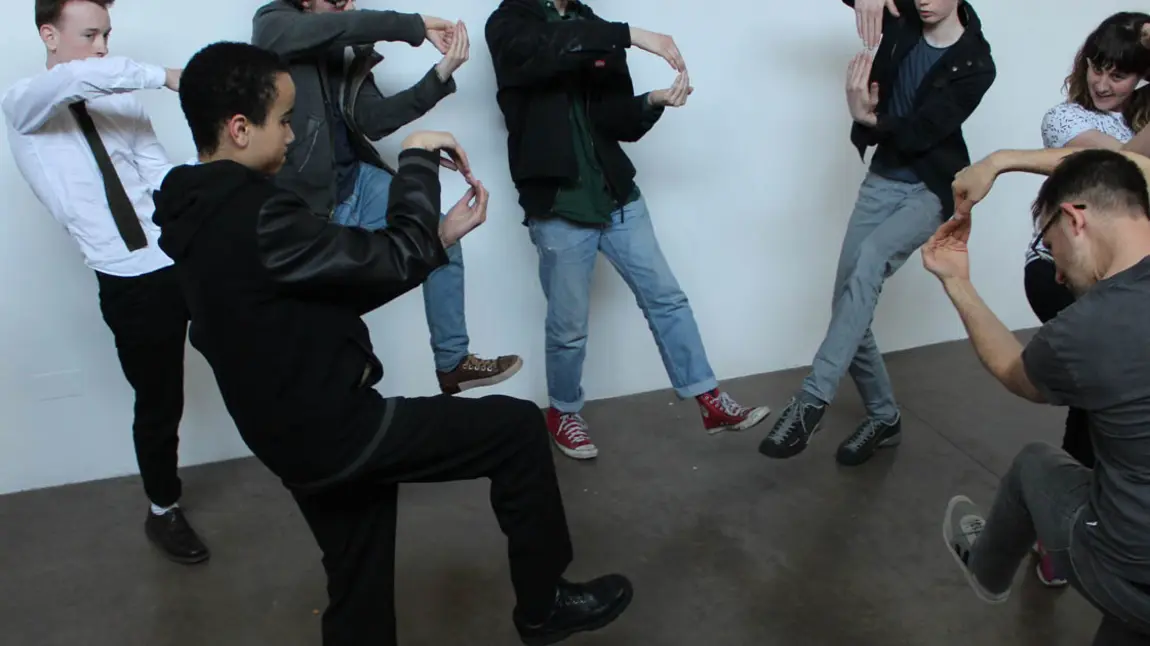Two projects to explore the history of health thanks to National Lottery players

2018 will mark the 70th anniversary of the formation of the National Health Service. Thanks to £49,800 from National Lottery players, Eastside Community Heritage (ECH) will work with current and retired NHS staff to explore the history of Harold Wood Hospital in London, and plan their celebrations of the postwar establishment of the NHS.
Meanwhile the Arts Assassins, the South London Gallery’s young people’s forum, will investigate the history of the Peckham Experiment, a pioneering health movement initiated in south east London 23 years before the foundation of the NHS. A grant of £49,900 will facilitate the group of young people to work with a range of partners including the Pioneer Health Foundation, the Wellcome Library, the Science Gallery at King’s College and community partners Peckham Vision and the Wilderness Wood. The project, which will run until autumn 2018, will see the group work alongside a historian-in-residence, heritage experts and artists to investigate the Peckham Experiment.
Stuart Hobley, Head of HLF London, said: “These two projects will offer a fascinating insight into the development of healthcare in the UK, and the incredible history of one of the most important institutions in this country. We are delighted that National Lottery players’ money is able to help explore these stories in more depth, and mark the 70th anniversary next year."
Three score years and ten – 70 Years of the NHS
Harold Wood Hospital was opened in 1909 by West Ham County Borough Council, as the Grange Convalescent Home for Children, which operated with the nearby Plaistow fever hospital. The Grange had been a private country house, built in 1884 by John Compton. Following multiple expansions, the Home became an Emergency Medical Service during the Second World War and the site became (and remained) a hospital, which joined the NHS in 1948. Following its recent demolition, ECH plans to collect memories from current and retired NHS staff and create a living history exhibition, Hospital Ward 1948, which will recreate the conditions of Harold Wood, explore its history and celebrate 70 years of the NHS.
Judith Garfield MBE, Director of ECH, said: “In 1948 a founding principle of the NHS was to ensure that there was a comprehensive hospital service available to everyone in need of it. The founding of the NHS was an ambitious and ground-breaking policy that changed the lives of many and is still doing the same today. ECH is proud to be retelling the history of a local hospital celebrating those that have worked to improve the health of local people along with the patients' story. Harold Wood was a local hospital which is sadly gone but like many hospital closures should not be forgotten. This project will recognise the valuable place in local communities that this hospital served, and will help to document the NHS and its place in local people’s lives."
The Peckham Experiment
Young volunteers from the Art Assassins, South London Gallery’s youth group for 14 to 21-year-olds, will work with the Pioneer Health Foundation, the Wellcome Library and the Science Gallery at King’s College, as well as Peckham Vision and the Wilderness Wood, to explore and share the history of the Peckham Experiment, a pioneering health movement in South London.
Founded in 1925 by doctors George Scott Williamson and Innes Hope Pearse, who believed that through a holistic approach to healthy living, well-being and social interaction, disease and illness would be reduced. The Experiment offered bespoke on-the-doorstep healthcare and support for the whole family, and ran until 1950, three years after the foundation of the NHS.
The project will help young people gain new skills in heritage research, exhibition curation, running workshops and intergenerational activities, and aims to bring stories of the early development of mass healthcare to a wider audience.
Further information
- HLF: Felix Gott, Communications Manager, via tel: 020 7591 6138 or email: felixg@hlf.org.uk
- South London Gallery: Alice Evans, Head of Marketing and Communications or Laura Wilson, Young People’s Programme Manager, via tel: 020 7703 6120 or email: alice@southlondongallery.org, laura@southlondongallery.org
- Eastside Community Heritage: Judith Garfield MBE, Director, via tel: 02085533116 or email: office@ech.org.uk